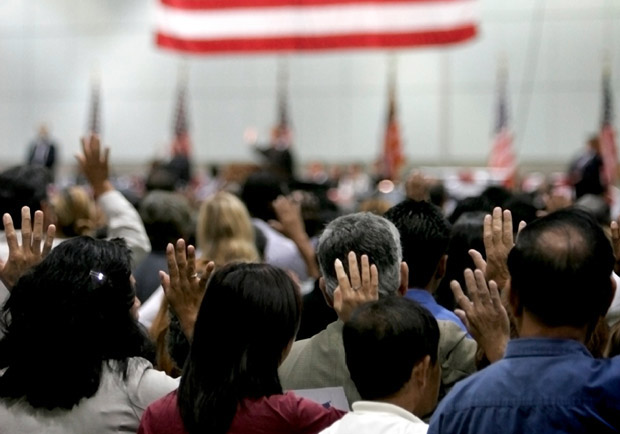David Boyd, a pastor from the suburbs of Sydney, sat on the floor of a smoke-filled room in rural Nepal, and spoke to the village elders through his interpreter and friend Gam. Peppered with questions about the "Jesus way," he marveled at the opportunity to share the gospel with this unreached people group, a privilege denied to previous missionaries. How was this unlikely door opened? It wasn't through a short-term missions trip or a Western missionary, but through Gam, a Nepalese migrant who became a Christian at Boyd's church in Sydney.
J. D. Payne, professor of evangelism at Southern Baptist Theological Seminary, wants to show the West that God is orchestrating the movements of migrants like Gam to help fulfill the Great Commission. Whereas other recent books about immigration have focused on political or ethical debates, Strangers Next Door: Immigration, Migration, and Mission (InterVarsity Press) instead seeks to educate Westerners about the tidal wave of migrants coming to the West, and so challenge them to reach one of the world's most important (and overlooked) mission fields.
The statistics of migration alone are enough to give pause for reflection. In 2010, the United States was home to 43 million international migrants, 20 percent of the world total and 30 million more than the next largest migrant host. Nearly 41 percent of the world's migrants live in the West, among them more than one million international students and another million refugees. Moreover, the Southern Baptist Convention–affiliated International Mission Board estimates there are 361 unreached people groups (defined by most as less than 2 percent evangelical) living in the United States, ranking the United States behind only India and China for the highest number of unevangelized people groups within its borders.
The world is on the move—and through migration, many "distant mission fields" are now in American neighborhoods, sitting at the same stoplights and waiting in the same grocery lines.
In the West's urban centers, the line between foreign and local missions is now a blur. Take, for example, Linda from Toronto. One day she walked into a salon and was greeted by a Somali hairdresser. Knowing most Somalis are Muslim, she began to share her faith. But the Somali woman promptly declared, "Don't worry. I believe in Jesus too. That lady," she said, pointing to her Chinese co-worker, "introduced me to the Savior." In the global diaspora, migrants are some of the best missionaries, both to their own people and cross-culturally. And in cities like Toronto, where visible minority groups are expected to make up over half the population by 2017, mission is now, in the words of Samuel Escobar, "from everywhere to everyone."
With its case studies and practical guidelines for reaching migrants, pastors and lay leaders will find Strangers Next Door to be a clear and useful resource in building a global missions strategy. Although the book is perhaps overly optimistic that many job-seeking migrants will eventually return home, Payne does readers a service by bracketing the U.S. immigration debate and refocusing attention on the unique opportunity migrants present for world mission.
During his travels, the apostle Paul once declared to the Athenians that God determined the times and exact places where people would live, so "that they should seek God, and perhaps feel their way toward him and find him" (Acts 17: 27, ESV). If God still intervenes to move people across the globe today so that they might hear the gospel, then perhaps it's time for Western Christians to venture across the street and meet the strangers next door.
Jeff Haanen is a freelance writer living in Denver.











